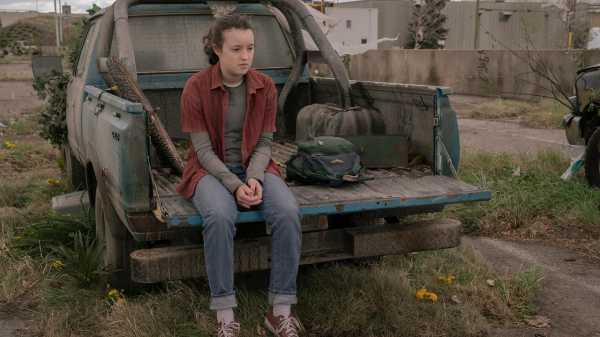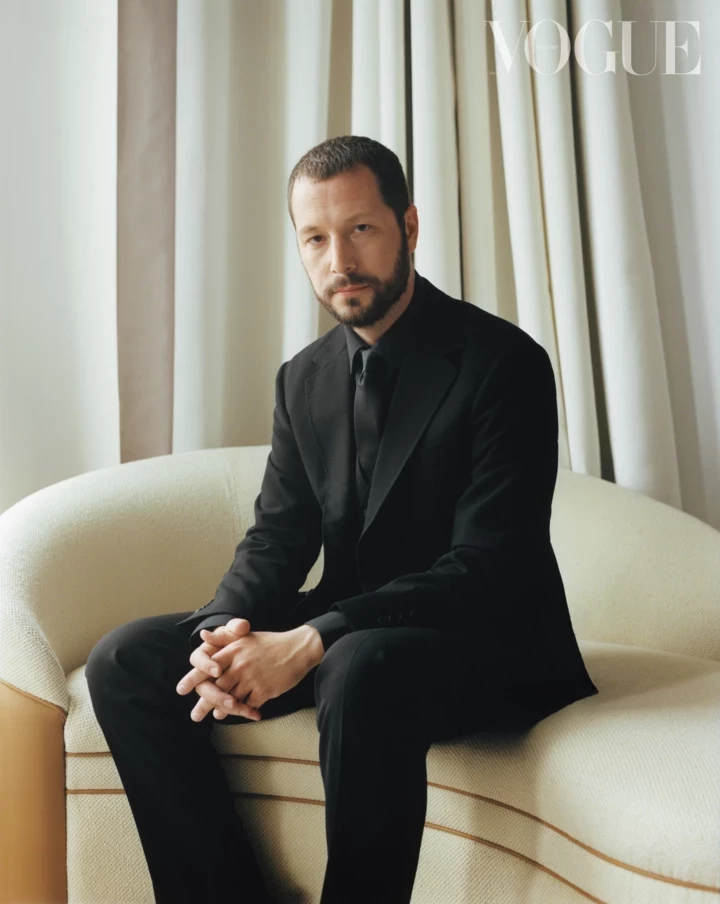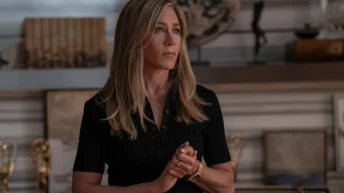
Save this storySave this storySave this storySave this story
When Craig Mazin sold “The Last of Us” to HBO, he described it as “a love story about how love makes people do terrible things.” In the course of the show’s first season, which concluded Sunday night, Joel (Pedro Pascal) and Ellie (Bella Ramsey) encounter a panoply of desperate, compromised characters on their trek across a post-apocalyptic America. Henry (Lamar Johnson) sells out a resistance leader to an authoritarian regime to secure treatment for his cancer-ridden younger sibling; Kathleen (Melanie Lynskey), once an idealist and liberator of her community, is consumed by vengeful bloodlust in the wake of her own brother’s death. But it’s Joel himself who ultimately emerges as the most extreme embodiment of the rule. In the finale, he brings Ellie, who is resistant to the Cordyceps fungus that has ravaged mankind, to a base where the Fireflies, a rebel group, hope to use her immunity to develop a vaccine—at which point he learns that a possible cure would come at the cost of her life. He storms the hospital wing where she’s being prepped for surgery and guns down everyone who stands in his way, choosing his surrogate daughter over the rest of humanity.
This ending, which is identical to that of the video game on which “The Last of Us” is based, has been divisive for more than a decade. Before the game’s release, in 2013, Neil Druckmann, its creator, found that play-testers were split; some wanted the choice to save the world, or simply had no interest in murdering innocent medics. When they reached the operating room, he said, about half waited or searched fruitlessly for another option: “They linger there for a while before they realize, ‘No, I’ve got to kill this doctor.’ ” (Parents, he noted, were far less likely to hesitate.) Many players were unnerved at being denied a conventionally heroic narrative—and at their forced complicity in an arguably villainous one.
Viewers have already begun to express a similar discomfort. Some flinched at the penultimate episode, in which Ellie is held captive by a preacher-turned-cannibal named David (a wet-eyed, unsettling Scott Shepherd), prompting Joel to torture and kill two of David’s followers in an attempt to find her. The acts are nauseating and gratuitous—but they track with the person we’ve caught glimpses of throughout the season. His zero-sum attitude toward survival has been apparent since the first episode, in which he keeps driving when faced with a family in need of aid, prioritizing his own; by the pilot’s end, he’s beaten a man to death with his bare fists. Mazin, whose breakout success came with the HBO miniseries “Chernobyl,” about the 1986 nuclear disaster and its subsequent coverup, has long been fascinated by characters who can’t or won’t weigh the safety of others against their own wants and needs. “I like showing people’s fragile minds,” he told me. “They’re liars. They bargain with themselves and other people. They don’t have access to their own feelings.”
In the show, the bond between Joel and Ellie—the animating impulse for the hospital massacre—develops slowly and then all at once, with the former finally prepared to act as a father just when the latter is unable to receive his affection. (Pascal’s goofy smile as Joel announces the discovery of a can of “Beefaroni Chef Boyardee” will doubtless be the stuff of memes, although Ellie is too busy dissociating to appreciate it.) She has, he tacitly admits, already helped him to heal from old wounds—but, when her life is at risk, the love that might have reformed him instead pushes him to atavistic extremes. After finding Ellie on a gurney, under anesthesia, he kills her surgeon, waves away a pair of nurses, and carries her out in his arms. Marlene (Merle Dandridge), a leader of the Fireflies, intercepts Joel at the last moment and makes a plea for him to reconsider. He shoots her, too—and, when Ellie wakes up in the car, claims that the rebels had been wrong about her body’s singular abilities. “Turns out there’s a whole lot more like you—people that are immune,” he says. “The doctors, they couldn’t make any of it work. They’ve actually—they’ve stopped looking for a cure.”
Part of what makes The Last of Us gripping is the gradual revelation of the type of man you’ve been playing—and the way you’ve become inured to it until the jolt of that final, selfish act. On TV, Joel slots into a long-standing antiheroic tradition; to an audience trained on “Game of Thrones,” the lie he tells Ellie may feel queasier than the violence he commits in her name. Midway through the episode, she’d refused Joel’s entreaty to abandon their search for the Fireflies and return to Jackson, Wyoming, where his brother Tommy lives in the only truly functional society they’ve encountered; as she tells him, “There’s no halfway with this.” Neither Marlene nor Joel stops to ask her, but it seems likely that, had she been given the choice, she would willingly have sacrificed herself for the common good. In attempting to protect her, Joel also robs her of her sense of purpose.
This is a great deal of emotional ground to cover in forty-four minutes—a running time that also makes the final episode the season’s shortest. The show’s travelogue structure and readiness to delve into the lives of minor characters have yielded some of its most original and affecting scenes, including the hour devoted to the romance between Bill (Nick Offerman) and Frank (Murray Bartlett). At other points, the sprawl of the world seemed to pull focus from the dynamic between its protagonists. (One wonders whether Kathleen’s complex backstory and prompt demise were the best use of precious screen time.) The game has the advantage of many more hours spent in Joel and Ellie’s company, which helps make Joel’s decision comprehensible, perhaps even justifiable. But, if the deepening of their relationship on the show has been hindered by occasional pacing issues, Pascal and Ramsey are capable of selling it anyway. In Episode 8, Ramsey moved persuasively from a kidlike attempt at intimidating two grown men—pitching her voice an octave lower, straining to hoist a rifle—to fear, then venom, then blind panic. When Ellie eventually crashes into Joel’s arms, Pascal’s subtlety as an actor is such that a murmured “It’s O.K., baby girl—I got you” works as a shorthand for emotions Joel hadn’t allowed himself to feel since his daughter’s death.
Their performances lend the season’s final moments a particular charge. Once safety is within reach, Ellie confronts Joel, dissatisfied by his explanations of their flight from the hospital. “Swear to me that everything you said about the Fireflies is true,” she says. “I swear,” he replies. The final shot mirrors that of the game and, thanks to Ramsey’s expressiveness, surpasses it. An array of emotions plays across Ellie’s face as she decides what to do with Joel’s deception; she steels herself and manages a quiet “O.K.” before the abrupt cut to black.
In the course of my reporting on the making of “The Last of Us,” I saw another possible ending. After Ellie absorbs the lie, the camera moves back to Joel, pushing in on his face, then the two turn away from the viewer and resume their long walk to Jackson. HBO was in favor of the take; the intent had been to set up a potential Season 2. But when Mazin watched it back in context, during the editing of the final episode, he said that it felt “soft.” (Druckmann had resisted the network’s preferred dénouement from the beginning. “When you let people settle down after the lie, and let them walk away towards the horizon, it’s a different feeling,” he told me.)
“I think we just need to own it and say to HBO, ‘This is the brave way to end it,’ ” Mazin said, referring to the harder cut. He noted the irony of the situation: fans of the game would likely assume that hewing so closely to the source material had been a conservative choice rather than the risky one. In reality, he had considered a range of options. “But the truth is, every time I tried to do something else, I just came back to what was beautiful about the way it was.” ♦
Sourse: newyorker.com







